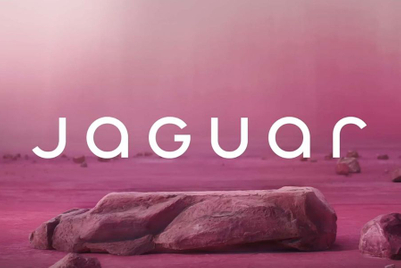
Thomas is chief creative coordinator at AOI Pro., the Tokyo-based production company where she has spent the past 25 years. Originally drawn to Japan by a deep respect for the craft of filmmaking, she has seen a reset of sorts since the 2009 financial crisis, or “Lehman Shock” as it is known in Japan. But she still sees reasons to be optimistic about the future of film in the market.
How did the crash of 2009 change things in your line of work?
Before the Lehman Shock I think the industry had really grown creatively. Agencies had so much pride in bringing ideas to life. With the Shock, everything fell apart. Working with international directors stopped. Budgets were tighter and things became much more domestic. But the process of becoming a director hasn’t changed. You shouldn’t have to start as a planner, but in Japan, people think it’s a good way to start. The sooner you can work on the craft, the better you will be as a director. It’s changing little by little.
You judged the Film Craft category at AdFest earlier this year. What stood out for you?
Japan and ANZ dominate AdFest because they have more money to spend. I would love to have seen more work from China, India and other regions. The Grand Lotus winner [Ocedel’s Firefly Man] was by far my favourite. If a commercial can keep your interest and you discover something new every time you watch it, it's a sign that the craft is amazing.
The average viewer doesn’t care about the craft of an ad though. What do you think is important from their perspective?
If a commercial is able to give you a ‘ma’ moment—a moment when you don’t think about anything else—then it’s entertaining. The story is obviously the most important thing, but if whoever works on it in production fucks it up, I feel sorry for the creative person who gave birth to the story because the people who realised it didn’t have affection for it.
How do you think Japanese film work differs to that in other Asian countries?
Japan is really into this technology boom, using different technology to tell a story. Australia is audacious and uses more of a shock factor. I think the rest of Asia is still more about storytelling and more human. China is very story-driven and reminds us of what the values in life are. Sometimes the stories are a bit contrived, but they are shared. Sad and happy stuff sells. Japan’s tech focus is not bad, but it makes a different connection with the viewer.
What would you like to see change in the way brands use film in Japan?
A lot of companies will air a commercial on TV, then put it up on YouTube and not allow comments. It’s so one-directional. They’re not thinking about the user experience for that particular media. More brands are putting things up on YouTube, Facebook, Instagram and Twitter, but they can’t just post it as it is; they have to think about what the experience is like on that platform. I don’t really hear of Japanese clients asking for different versions of a campaign for TV and for YouTube, etc. I’d like to see more of that.
The whole reason for YouTube is the aspect of sharing. Posting a video and not allowing comments is very antisocial. More clients need to take the risk and allow comments, then have a social media manager respond.
Is it because they don’t have confidence in their work?
I would see it that way too, but it’s more that they don’t want the hassle of having comments. Account executives [at agencies] are not educating clients on the importance of creating a rapport with fans.
Is anyone in Japan really thinking in terms of online first?
Not yet. Even America’s not really ready for online first. They still put the biggest amount of money on the Super Bowl. I think it’s going to balance out but right now it’s still TV. This year at AOI is the year of online video. What we’re doing as employees is looking at what different formats mean and how videos are shared on those formats. Hopefully we will become a leader in creating content for specific social media or platforms.
There’s still the perception that working as a producer online is at a lower level than for TV. An online video isn’t seen as important as a commercial. I want to change that.
How?
We have to raise understanding. I don’t want to say ‘old men’, but the people who spend money often don’t understand the power of social media. Unless it’s explained to them by account executives, it will be very hard to see those changes happen. A big game changer would be when something created specifically for Instagram or Facebook won awards. It doesn’t even have to be an international award—just an award.
Creativity in Japan is a series by David Blecken and Barry Lustig, managing partner of Cormorant Group, that examines the market's changing creative landscape.
This article was originally published in Japanese on Campaign Japan.




.jpg&h=334&w=500&q=100&v=20250320&c=1)
.jpg&h=334&w=500&q=100&v=20250320&c=1)
.jpeg&h=334&w=500&q=100&v=20250320&c=1)
.jpg&h=334&w=500&q=100&v=20250320&c=1)
.jpg&h=334&w=500&q=100&v=20250320&c=1)
.jpg&h=334&w=500&q=100&v=20250320&c=1)






.jpg&h=268&w=401&q=100&v=20250320&c=1)


.jpg&h=268&w=401&q=100&v=20250320&c=1)